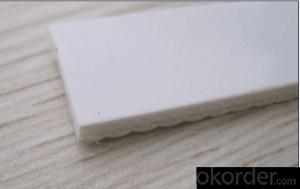When you’re in the market for 3 inch plastic pipe fittings, you’re diving into a world of options, uses, and considerations. It’s not just about the size, but the functionality, durability, and compatibility with your specific project. So, let’s dive in and size up the world of 3 inch plastic pipe fittings.
The World of Plastic: An Overview
Plastic pipes and their fittings have come a long way from their early days of being perceived as less durable and less reliable. Today, they are engineered to meet various industry standards and are used in a wide range of applications, from residential plumbing to large-scale industrial projects.
Why Choose Plastic?
Plastic is a popular choice for several reasons. It’s lightweight, easy to handle, and cost-effective. It also offers excellent resistance to corrosion and chemicals, making it a favorite for many environments. Moreover, the installation process is generally simpler and less labor-intensive compared to metal pipes.
Types of Plastic Pipe Fittings
When it comes to 3 inch plastic pipe fittings, there are several types to choose from, each with its own set of benefits and ideal applications. Let’s explore some of the most common types:
Compression Fittings
These are the old reliables. They work by compressing a ring against the pipe, creating a tight seal. They are easy to install and require no special tools, making them a favorite for DIY enthusiasts.
Push Fit Fittings
A modern innovation, push fit fittings are all about convenience. They simply ‘push’ onto the pipe, creating a secure connection without the need for glue or heat. They are perfect for quick installations and are widely used in both residential and commercial settings.
Socket Weld Fittings
For applications that require a high level of pressure resistance, socket weld fittings are the go-to choice. They are designed to be welded into the socket of the pipe, providing a strong and secure connection.
Flare Fittings
Flare fittings are known for their airtight seal and are often used in high-pressure applications. They are a bit more complex to install but are well worth the effort for the peace of mind they provide.
Material Matters
The material of the pipe fittings plays a crucial role in determining their suitability for your project. Common materials include:
– PVC: Known for its resistance to chemicals and ease of installation. It’s a popular choice for water supply and drainage systems.
– CPVC: A step up from PVC, offering higher heat resistance, making it suitable for hot water systems and some industrial applications.
– PEX: Flexible and durable, PEX is often used for radiant heating and potable water supply systems.
– ABS: Resistant to impact and suitable for both hot and cold water applications, ABS is a versatile option for various plumbing needs.
Sizing and Compatibility
It’s crucial to ensure that the fittings you choose are the correct size for your pipes. Mismatched sizes can lead to leaks and other issues down the line. Always double-check the diameter of your pipes and the fittings to ensure a perfect match.
The Importance of Quality
Investing in high-quality fittings is not just about peace of mind; it’s about the longevity and performance of your plumbing system. Cheap, low-quality fittings may seem like a good deal initially, but they can lead to more significant problems and costs in the long run.
Installation Tips
Here are some tips to keep in mind when installing your 3 inch plastic pipe fittings:
1. Clean the Pipes: Ensure the pipe ends are clean and free of debris before inserting them into the fittings.
2. Check the Fit: Make sure the fittings slide on smoothly and without force. Forcing can damage the pipe or the fitting.
3. Secure Properly: Depending on the type of fitting, ensure it is secured correctly. For compression fittings, this may mean tightening the nuts evenly. For push fit, ensure it’s pushed home with a click.
4. Test for Leaks: After installation, it’s always a good idea to test the system for leaks to ensure everything is connected and sealed correctly.
Maintenance and Care
Proper maintenance and care can extend the life of your plastic pipe fittings. Regularly inspect them for signs of wear or damage, and replace any parts that show signs of failure.
The Bottom Line
When it comes to 3 inch plastic pipe fittings, there’s more to consider than just the size. The type of fitting, the material, the quality, and the proper installation all play a role in ensuring a successful plumbing project. By taking the time to understand these factors, you can make an informed decision and enjoy the benefits of a reliable and long-lasting plumbing system.

